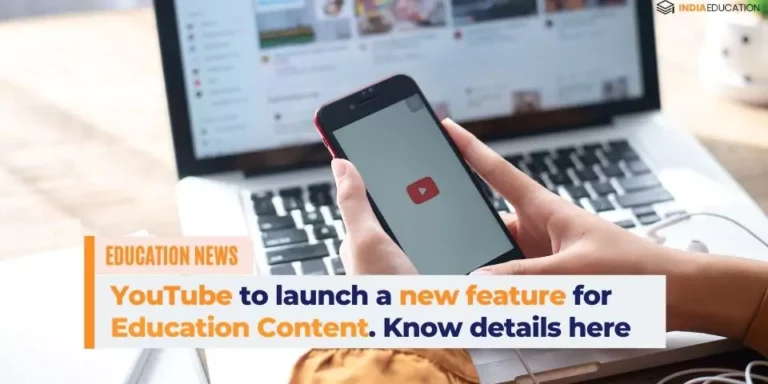
YouTube to launch a new feature for Educational Content. Know details here
YouTube has announced new tools for creators making educational content on the platform. These tools include ways to charge viewers for access to videos. This will allow creators to generate revenue from their educational content.

In an effort to make a name for itself in the digital education tools market, streaming platform YouTube has announced a stripped-down version of its site tailored specifically for use in schools and colleges.
In addition to this, YouTube is introducing Player for Education and Courses – a feature that will allow video creators to offer online classes for a fee or free of charge.
Also read: 100 Universities Identified for Incorporating Supply Chain Management and Logistics courses
YouTube is reportedly introducing new tools that will enable creators to charge viewers for educational videos. According to reports, the new features will include the ability to create paid “courses” consisting of video playlists.
It is interesting that YouTube is rolling out this paid feature in light of the fact that many people use the platform for free educational content. However, it seems that the company is banking on the fact that people are willing to pay for ad-free, convenient access to video courses.
The report said that the courses will be available in the US and South Korea in beta form. It will be interesting to see how YouTube’s new business model fares in these markets.
YouTube is licensing its new service, Player for Education, to education technology companies. This will allow them to filter YouTube’s enormous video library with different restrictions, according to a Bloomberg report. The service won’t run advertisements or show video recommendations. Initially, YouTube is working with EDpuzzle Inc., Purdue University Global Inc., and Google Classroom.
YouTube isn’t new to the educational market, as the platform has been reportedly lobbying classrooms to use its vast selection of videos for several years now. However, these past pitches have met with concerns over YouTube’s targeted advertising and non-educational content. In light of this, YouTube has shared that it will give all sales from its new service to creators whose videos play in classrooms for the first two years. After this time period, YouTube will take a commission of sales.
Latest News
People Reading Now

CBSE Compartment Result 2023 OUT: Click For Direct Link



CSAB 2023: Special Round Registration Begins Today

